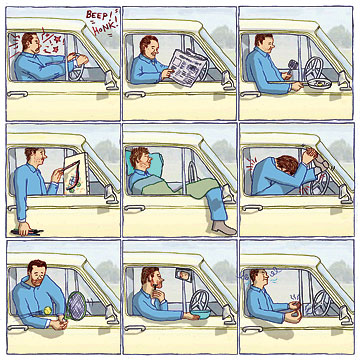
Best Place to Learn Patience
Jakarta
At one time, Bangkok and Jakarta were jointly famed for having the worst traffic in Asia. But in the past decade, Bangkok got its act together through the construction of underground and elevated rail systems, leaving Jakarta as the capital of gridlock. Anyone who wishes to dispute this need only consult a 2007 study by the Yayasan Pelangi Indonesia, an environmental NGO, which concluded that traffic delays cost Jakarta $3.5 billion a year in lost productivity and extra fuel costs. The number of vehicles on the road in Jakarta doubled in the preceding 10 years while roads only grew 10%. If nothing is done to improve things, the study predicts, traffic will grind to a complete halt by 2014.
Sometimes it feels like it already has. Two years ago, on one horrible afternoon that I will never forget, it took me six hours to drive less than three kilometers when the city was inundated by heavy rains. As I tried to make my way home, my car overheated and I was forced to urinate in an empty water bottle twice. With tempers flaring, and the police looking as paralyzed as the traffic, the military was called in to keep deranged motorists from doing things they would have regretted. (You know things are bad when soldiers are called in to direct traffic.)
But this kind of experience has taught me and many a Jakarta motorist the forbearance normally reserved for desert-dwelling mystics. Indeed, drifting into a transcendental state is the first way to deal with the city's traffic. The second is to procure a meticulously programmed iPod. My "gridlock" playlist comprises hundreds of songs, from Autolux to Led Zeppelin. And as my spirit climbs that stairway to heaven above the chaos below, I see through to the true heart of things and understand that it does not matter whether traffic moves or does not move. Traffic simply is, now and for all eternity.